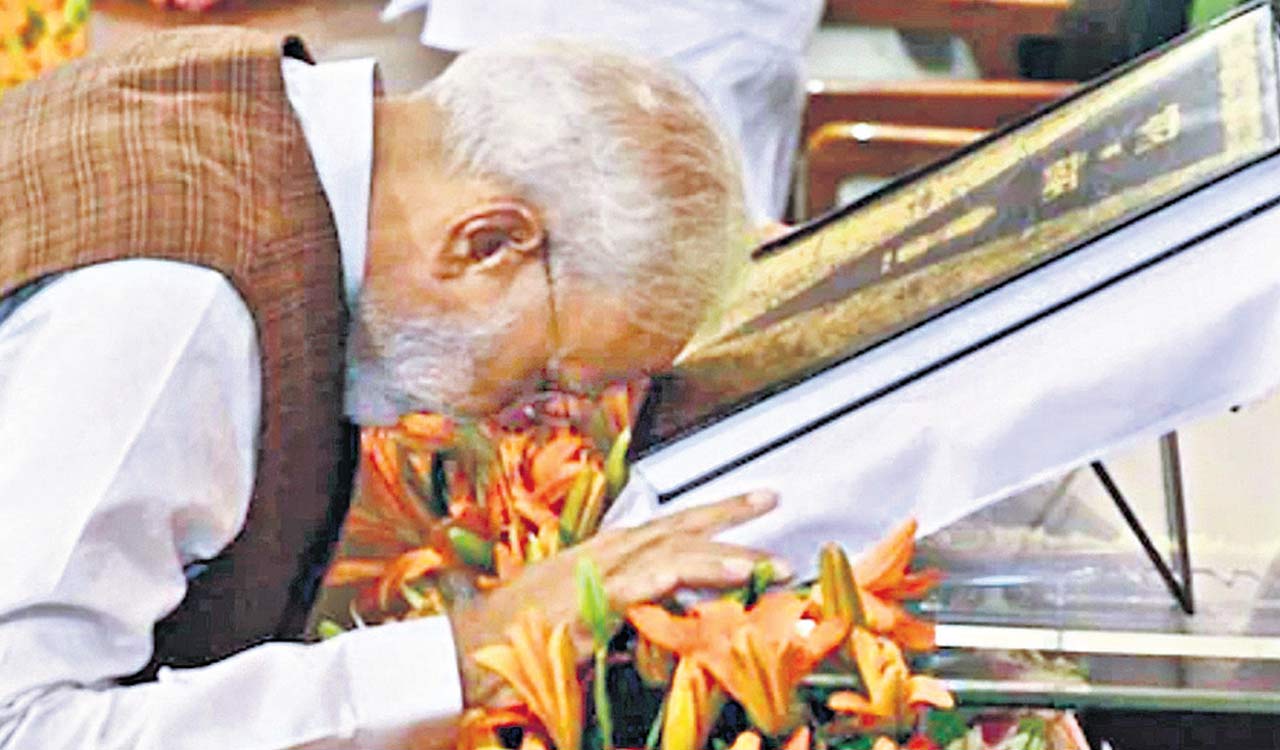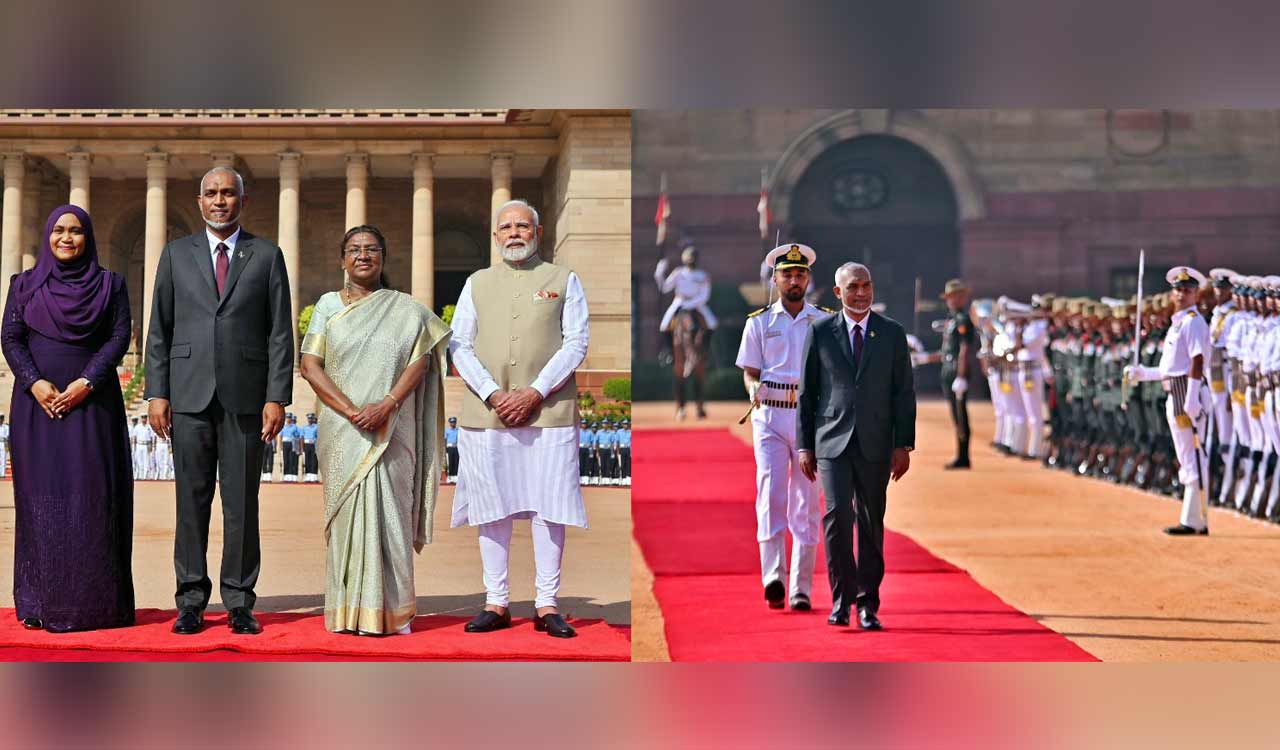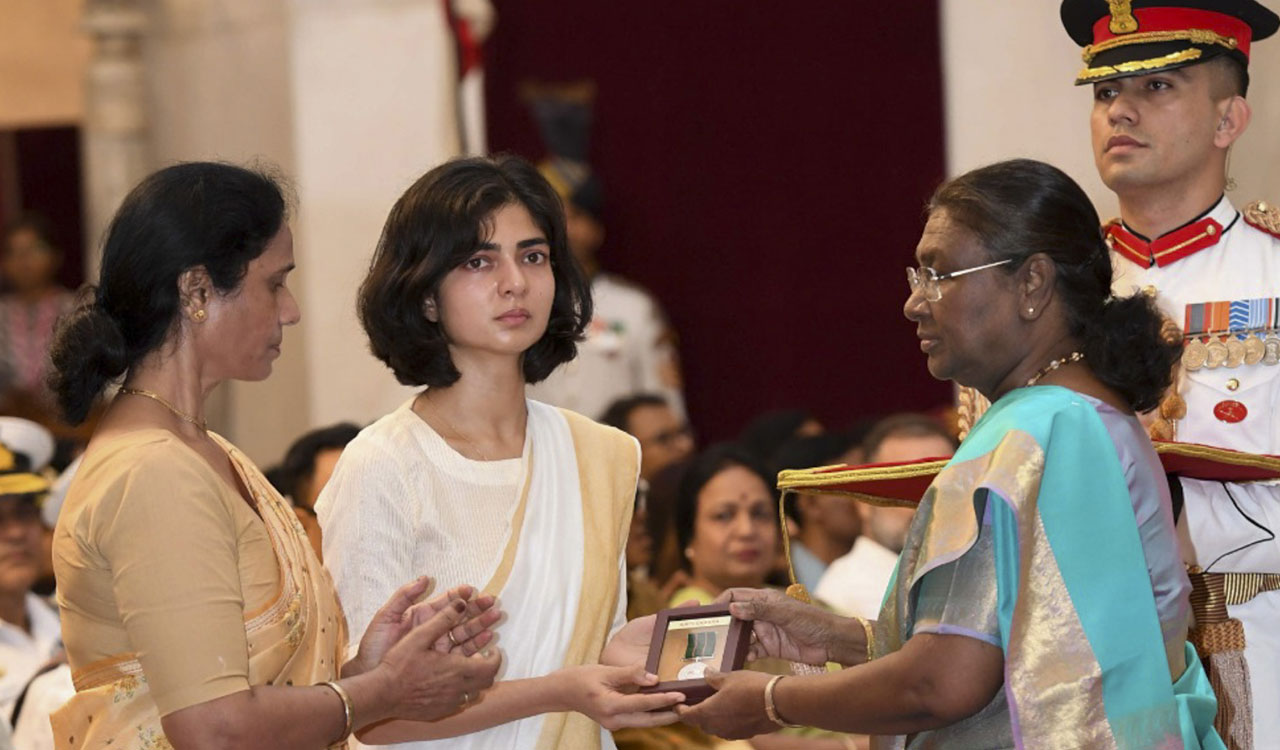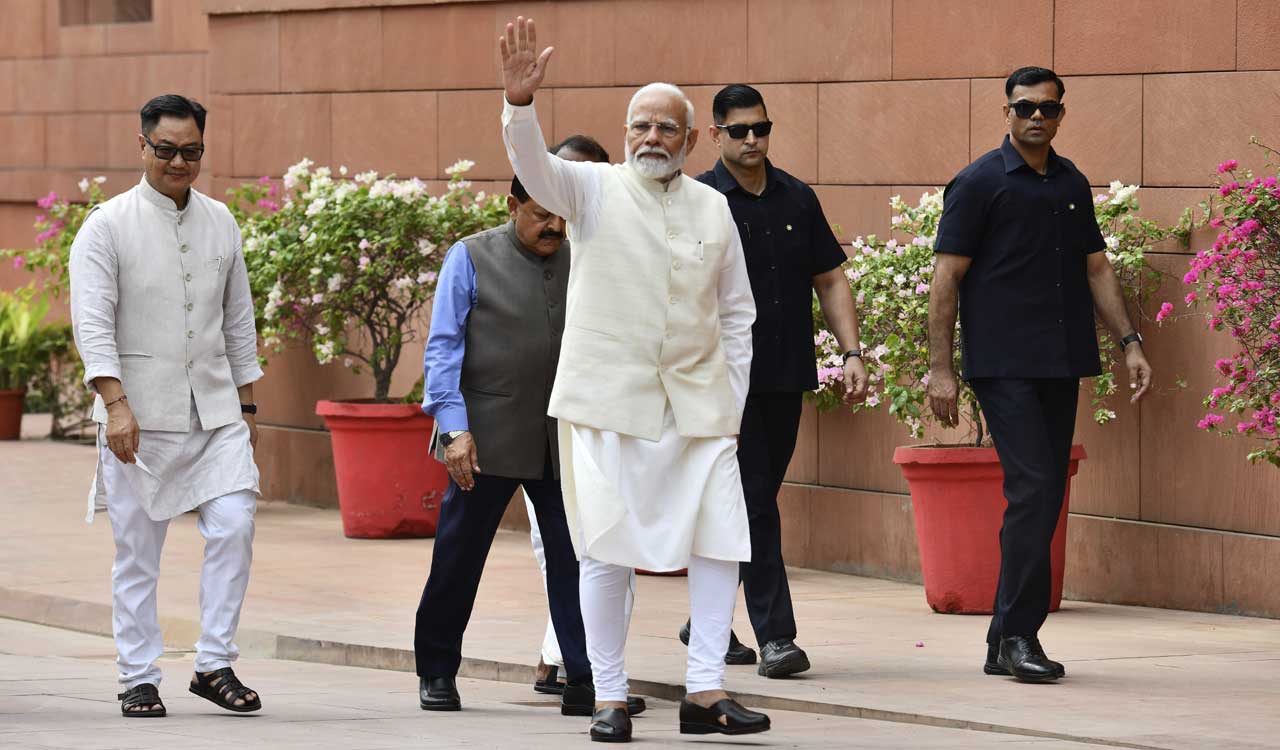Opinion: Fakhruddin Ali Ahmed’s costly blunder
Had the then President referred to the Constitution before signing the ‘Emergency’ file, history would have been different

By Dr M Sridhar Acharyulu
After being defeated in the 1971 Lok Sabha elections, Raj Narain filed a case alleging fraud and use of state machinery, and challenged Indira Gandhi’s election. Justice Jagmohan Sinha on 12 June 1975 declared the election of Indira Gandhi void. She was unseated from Lok Sabha seat and banned for six years. On an appeal by Indira Gandhi, Supreme Court judge Justice VR Krishna Iyer, on 24 June 1975, in a controversial order, while upholding the High Court judgment, allowed her to continue as Prime Minister pending hearing of appeal. Indira Gandhi was debarred from all privileges and voting. But it was enough for her to continue as the Prime Minister. She took over the authority and imposed the Emergency.
Gandhi ‘requested’ a compliant President Fakhruddin Ali Ahmed to proclaim a state of emergency. Unfortunately, the President did not know that the proposal was sent without discussion with the union Cabinet and approved it. Earlier, within three hours after the imposition of the Emergency, electricity to all major newspapers was cut off and the opposition members were arrested.
Historian Gyan Prakash in his book ‘Emergency Chronicles: Indira Gandhi and Democracy’s Turning Point’, narrated how the President signed the file on Emergency at midnight. He was not aware of what was happening until the morning Emergency was declared. Except for Indira Gandhi and her close followers, no one knew the constitutional procedure preceding the signing of it.
The whole problem was that a leader such as the President should read the provisions of the Constitution, understand and apply the mind before signing a significant file. A President should not conduct himself as a rubber stamp in the highest constitutional officer. Ahmed’s signing the file was not just a mistake, but a blunder because he did not read, or at least wait for his personal secretary, who generally is a senior IAS officer, to get a copy of the Constitution of India, to understand the matter.
Gyan Prakash writes: “President Fakhruddin Ali Ahmed summoned his secretary, K. Balachandran, at around 11:15 p.m. on June 25, 1975. Ten minutes later, Balachandran met the pajama-clad president in the private sitting room of his official residence at Rashtrapati Bhavan. The president handed his secretary a one-page letter from Indira Gandhi marked “Top Secret.” Referring to the prime minister’s discussion with the president earlier that day, the letter said she was in receipt of information that internal disturbances posed an imminent threat to India’s internal security. It requested a proclamation of Emergency under Article 352 (1) if the president was satisfied on this score. She would have preferred to have first consulted the cabinet, but there was no time to lose. Therefore, she was invoking a departure from the Transaction of Business Rules in exercise of her powers under Rule 12 thereof.
The president asked for his aide’s opinion on the letter, which did not have the proposed proclamation attached. Balachandran said that such a proclamation was constitutionally impermissible on more than one ground.
At this, the president said that he wanted to consult the Constitution. Balachandran retreated to his office to locate a copy.
Meanwhile, the deputy secretary in the president’s Secretariat showed up. The two officials launched into a discussion about the constitutionality of the prime minister’s proposal before they returned to President Ahmed with a copy of the Constitution. Balachandran explained that the president’s personal satisfaction that internal disturbances posed a threat to internal security was constitutionally irrelevant. What the Constitution required was the advice of the Council of Ministers. Balachandran withdrew when the president said he wanted to speak to the prime minister. When he re-entered the room ten minutes later, President Ahmed informed him that R.K. Dhawan had come over with a draft Emergency proclamation, which he had signed.
Then the president swallowed a tranquilizer and went to bed.” Hunt for Constitution!
The author explained the sordid episode, as follows: “This late-night concern for constitutional propriety is revealing. What we see unfolding in the hunt for a copy of the Constitution, the leafing through of its pages to make sure that the draft proclamation met the letter of the law, is the meticulous process of the paradoxical suspension of the law by law. The substance of the discussion concerns the legality of the procedures to follow in issuing the Emergency proclamation. The political will behind the act goes unmentioned. This is because Article 352 (1) of the Constitution itself had left the judgment of the necessity for the Emergency proclamation outside the law.” It is a tragedy at Rashtrapati Bhavan “The doctrine of necessity regards the judgment of crisis conditions as something that the law itself cannot handle; it is a lacuna in the juridical order that the executive is obligated to remedy. This leaves the sovereign to define the conditions necessitating the suspension of law. Accordingly, the discussion at Rashtrapati Bhavan made no reference to the politics of the Emergency proclamation.” Ceremony for Namesake On 18 September 2023, the Prime Minister carried a copy of the Constitution from the old to the new Parliament building when the five-day special session began in the old Parliament building. Day two of the session took place in the new building.
Along with reciting ‘Vande Mataram’ or ‘Jana Gana Mana..’ or worshipping the big book of the Constitution, it is more important to follow the law
The ruling party alleged that the Congress was planning to change the Constitution to introduce religion-based reservations saying that using fake videos, the conspiracy was being hatched to create social tension during elections. Similarly, the Congress said it would protect the statute.
However, it is not enough to recite ‘Vande Mataram’or ‘Jana Gana Mana..’ or worship the big book of the Constitution with ‘haldi’ or ‘Kumkum’. We don’t’ need to do all that. It’s enough to follow the law or statute.

(The author is Professor of Law, Mahindra University, Hyderabad)
Related News
-
Maldives President Muizzu receives ceremonial welcome at Rashtrapati Bhavan
-
Northeast culture enthralls at Bharatiya Kala Mahotsav held in Rashtrapati Nilayam
-
‘Love at first sight’: Wife of gallantry awardee Army officer recalls their love story
-
Modi takes oath as member of 18th Lok Sabha, says people want substance not slogans
-
Opinion: The China factor in India-Nepal relations
27 mins ago -
Editorial: Modi’s Kuwait outreach
28 mins ago -
Telangana HC suspends orders against KCR and Harish Rao
1 hour ago -
Kohli and Smith will be dangerous and hungry: Shastri
1 hour ago -
Sharvari shares her TBR list of romantic book titles, suggested by fans
2 hours ago -
Khammam Congress gaffe: Union Home Minister Amit Shah made ‘Defense Minister’
2 hours ago -
Couple held for theft in Hyderabad
2 hours ago -
KCR extends Christmas wishes to people of Telangana
2 hours ago




